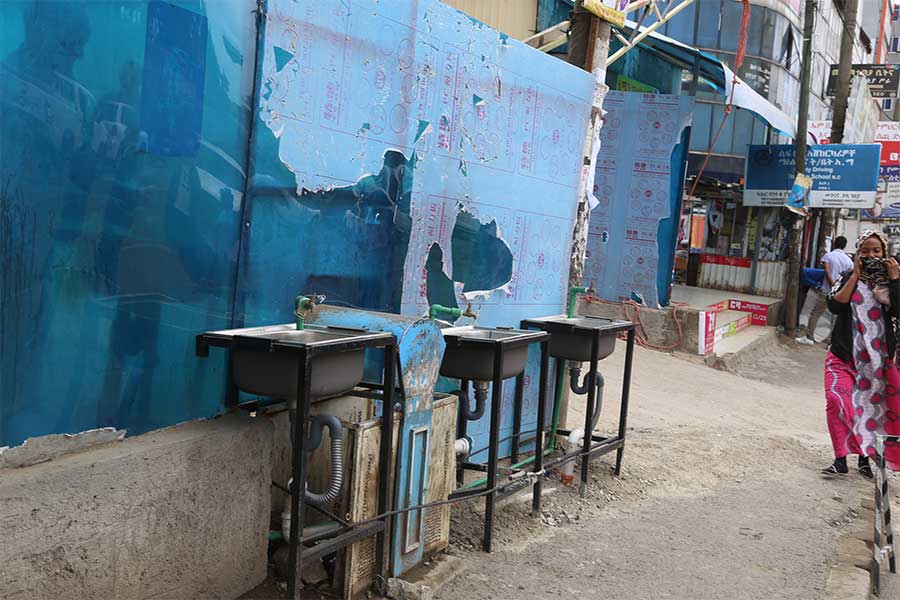
Following the first few reported cases of the Novel Coronavirus (COVID-19) in Ethiopia, one of the chief means of fighting against the pandemic was considered public hygiene.
Following the first few reported cases of the Novel Coronavirus (COVID-19) in Ethiopia, one of the chief means of fighting against the pandemic was considered public hygiene. There have largely been initiatives from the government and grassroots volunteer groups to improve access to water as a result, but some have not turned out as they were expected to. One of these is around Mexico Square, where sinks were constructed on top of and next to a trash bin. Worse, they have since stopped working, with no soap in sight, and pose more health risks than they address.
[ssba-buttons]